Nigerians have a famous proverb: “It takes a village to raise a child”. However, in the case of Musa Hasahya Kasera, this saying isn’t entirely accurate, as his children alone are enough to form a village.
Hasahya is from Uganda, a country located in East Africa. This man has so many descendants that he can’t even remember all their names. Clearly, Hasahya has struggled to fully support a large family that includes 12 wives, 102 children, and 578 grandchildren.
The initial difficulties related to food and finances were often treated as jokes, but as he aged, the issues became increasingly apparent.
The 68-year-old man, who lives in Bugisa village, a remote area in eastern Uganda, stated: “My health is declining while my large family has only a mere 2 acres of land. Two of my wives left because we couldn’t afford basic needs like food, clothing, or sending the children to school.”
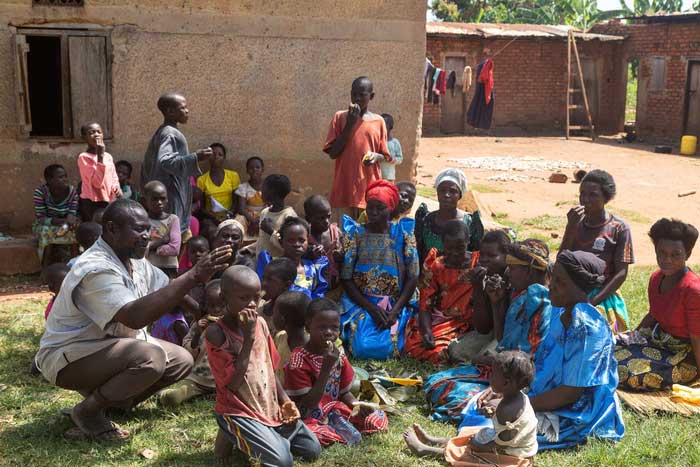
Musa Hasahya (left) with some of his wives, children, and grandchildren outside their home.
Hasahya also mentioned that his wives are using contraceptive methods to prevent the family from expanding further: “My wife is on birth control. I don’t want more children because I’ve learned a lesson from my past irresponsible actions, having too many children but not being able to care for them.”
The elderly man is currently unemployed, and his primary source of income comes from tourists who want to see this unique family. Hasahya’s children and grandchildren live clustered around their old house and 20 straw huts.
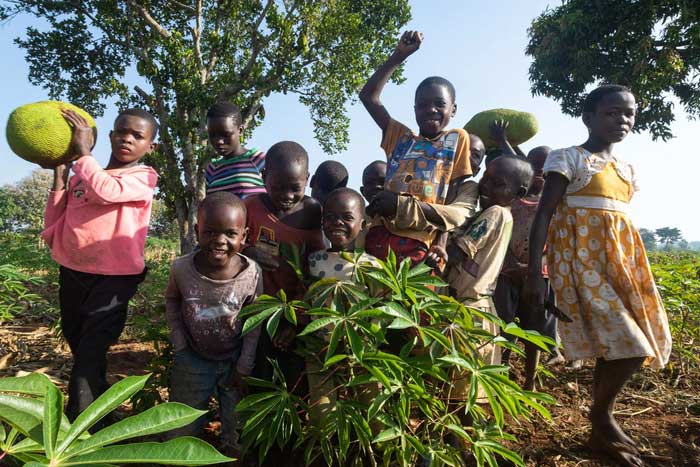
Hasahya’s children and grandchildren taking photos while harvesting jackfruit.
He married his first wife in 1972 through traditional rites when both were only 17 years old. Their first child, Sandra Nabwire, was born just a year later.
“When I had only one wife and one child, relatives and friends encouraged me to marry more wives and have more children to expand the family,” he said.
Thanks to his successful livestock trading and butchering, Hasahya became a “model son-in-law” for many villagers, with parents eager to marry off their daughters to him, even to those who were not yet 18.
At that time, child marriage was not yet prohibited in Uganda. Moreover, polygamy was still allowed in this East African country according to certain religious traditions.
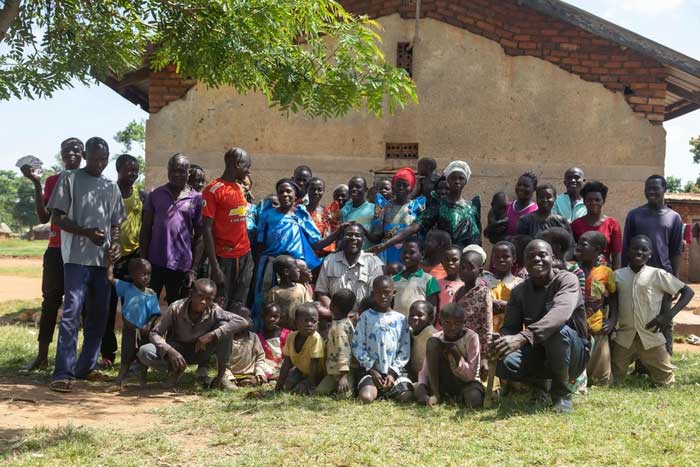
Hasahya’s 102 children range in age from 10 to 50 years old, while his youngest wife is around 35 years old.
Due to having so many children, Hasahya cannot remember all their names: “I can only remember the name of my first child and my last child; I can barely recall the others.” Hence, whenever he needs to find one of his children, he asks his wives for help.
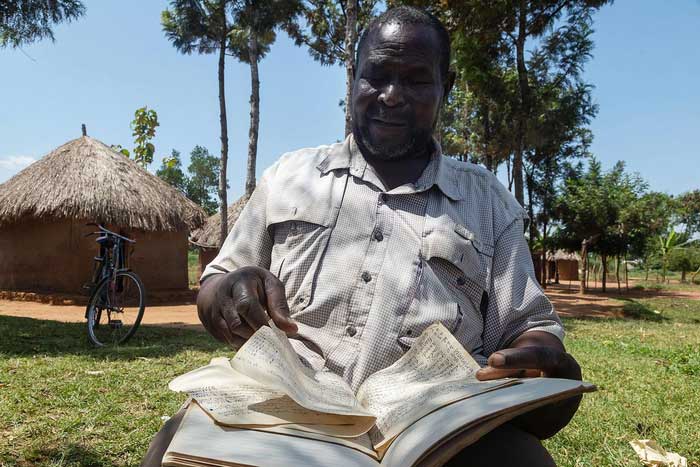
Musa Hasahya holding notebooks detailing his family’s history, including the names and birth dates of all 102 children.
Even more surprisingly, this man cannot remember all his wives’ names either. In such cases, Hasahya turns to Shaban Magino, a 30-year-old primary school teacher and one of the few sons in the family who has received an education and takes charge of managing family affairs.
To resolve disputes in such a large family, they hold a meeting every month.
Despite these challenges, Hasahya has managed to raise his children and grandchildren well, steering them away from paths like theft or fighting. Family members try to earn money however they can, such as doing odd jobs for neighbors or spending entire days walking into the forest to collect firewood and water.
The residents of Bugisa are primarily farmers engaged in small-scale agriculture, growing crops like rice, cassava, and coffee or raising livestock. On ordinary days, people sit in the yard, with some women weaving mats or braiding hair, while men play cards under the shade of trees.
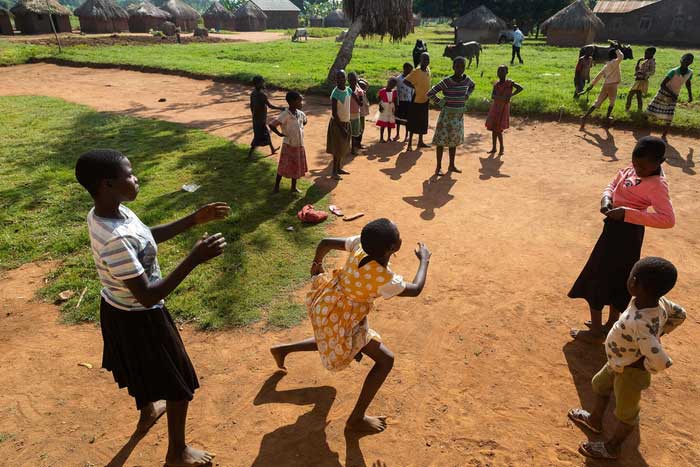
Some of Musa Hasahya’s grandchildren playing a traditional game outside their home.
When lunch, consisting of boiled cassava, is ready, Hasahya leisurely steps out of the hut where he spends most of his day and calls the family to line up for a meal. However, the food is hardly enough for everyone, and on days of severe shortage, they have to reduce their meals to just 1 or 2 times a day.
Zabina, Hasahya’s third wife, admits that if she had known he had other wives, she would never have accepted him. She says: “Even when I resigned myself to my fate, he still married a fourth, fifth, and many more.”
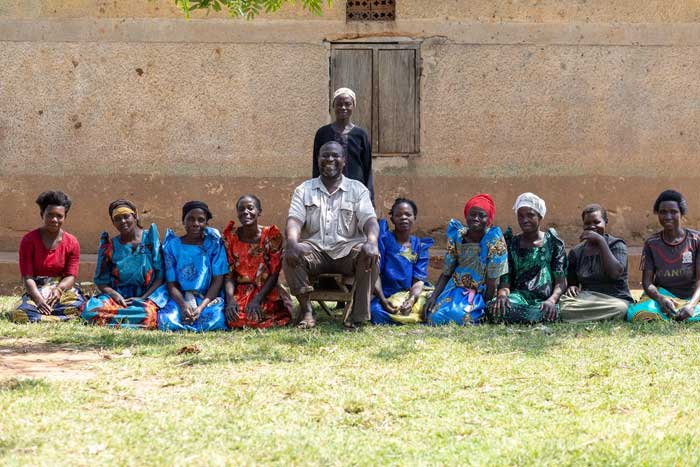
Musa Hasahya taking a photo with his wife.
Two of his wives have left, while 3 others currently live in a town 2 km away because there isn’t enough room at home. Despite everything, Hasahya still believes they are living a happy life.


















































